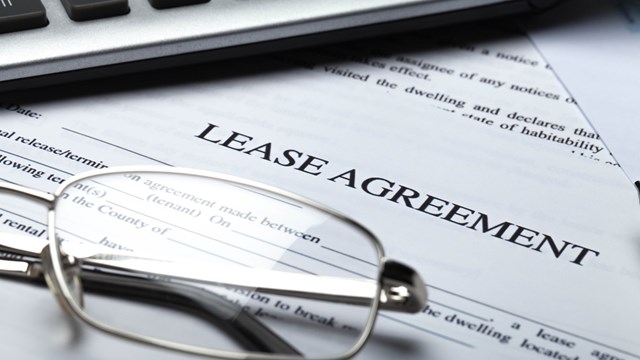Often, the best, most successful boards and communities share the same combination of habits and traits; all the while, the worst, least successful boards and communities share the same habits and traits, as well. Case in point: there isn’t tremendous mystery in what actions make certain communities successful…and others complete failures.
“Whether you live in a small, close-knit neighborhood, a luxury gated community, a high-rise in the city, or a beach-front condo, your HOA board will need to stick to some fundamental principles in order to be successful,” says Billy Rudolph, the director of corporate communications for Associa, the nation’s largest association management company, with two offices in New York.
1. DO organize. “The most basic tool that a board should have and the easiest for any board to achieve—is organization,” said Enid Hamelin, the director of marketing with Lawrence Properties, a full-service building management company based in New York City. Hamelin was a board member in her building for 16 years, five of which she didn’t live in the building (but still owned a unit in it), and claims the more organized the board was, the smoother it ran. Prior to each meeting, her board always sent out an agenda. That small action saved time during the meeting, and was super helpful for everyone. “It’s all about getting the board to run properly,” Hamelin says.
Sticking with that agenda is crucial. Rudolph says that board members and residents often have individual and personal agendas to present at meetings, making it difficult to remain on topic, causing them to run for hours upon hours. If there’s an agenda and a time limit for other business, then it becomes easier to keep the meetings timely.
Although easier said than done, creating a diverse group of board members is imperative, also. “They may be florists or interior decorators; they may be in retail or one may be an artist, and it’s really helpful for the managing agent to remind them that there are opportunities where they can learn,” Hamelin says.
2. DON'T be a know-it-all. In fact, when people believe they are experts on a topic, often they allow personal opinions to interfere with the building’s interest, says Michael Beirne, author of The Property Management Tool Kit. “Apply your personal experience in life very sparingly,” Beirne says. “People tend to think that because they’re good at something, that they’ll be good at it here. But that makes it hard for you to apply your knowledge in the purest way: if you’re a good manufacturer, some of the rules of manufacturing may not apply to the association.”
Of course, an accountant’s presence on the board has a significant impact, Beirne explains; but that accountant need not apply every accounting skill he or she knows because they don’t all relate…and that’s when everything goes haywire. Normally, the accountant may practice their skills a certain way but that way may be irrelevant to a building scenario. Thus, the board should hire those who specialize in building management; they are more likely open to directions and opinions of the board members.
“Generally, boards should value the professional help that they hire,” Beirne says. “What happens to a lot of boards is that they don’t listen to the professionals because they have a personal skin in the game. But the professionals are helping in a neutral way with a clear head, and you should listen to them.”
3. DO listen to the experts. When boards listen to the specialists they hire, according to Beirne, buildings become more powerful. These professionals shouldn’t cost a fortune, though. The bigger buildings can afford permanent staff, or those whom they can count on to ask questions whenever something arises. It’s possible, however, for smaller buildings to receive assistance without overspending. “They can subscribe to The Cooperator, to Habitat, to The Council of New York Cooperatives & Condominiums (CNYC),” Hamelin says. “That’s very important…that’s how you get educated.”
This way, Hamelin explains, board members become experts of their own, able to reference previous issues of each of the publications in order to find the answers to their various questions. Also, she suggests attending The Cooperator trade show conventions and seminars, which take place annually, because most building vendors in New York attend, for both educational and networking purposes. “Bring your questions and discuss with them there,” she says. “The smarter your boards are, the better they are.”
On many boards, only certain members can read a financial report accurately. Indeed, interested parties can benefit from the assistance of a professional who can teach the individual board members methods of analyzing a report, Hamelin says. “The more knowledge they have, the less insecure they’ll be about making decision,” she says. “They also have to be comfortable enough with their managing agent’s experience so they can come to them knowing they can get the answer.”
Furthermore, the board can attend seminars like the one hosted by The Council of New York Cooperatives & Condominiums to learn about more specific topics important to their building. Marc Luxemburg, a lawyer with Gallet Dreyer & Berkey, LLP and the president of CNYC, specializes in representing co-op boards. His council’s seminar is specifically geared toward co-op board responsibilities; it’s held twice a year, and information is available online at www.cnyc.com.
“We talk about the legal obligations of board responsibilities for the proprietary lease of the board and members, and we talk about practical ways for the board to comply with the regulations and rules, and how it should go about doing it,” Luxemburg says.
4. DO communicate.Listening to the shareholders is crucial, according to Luxemburg. This is, perhaps, the most significant downfall of a board, and the easiest—and least expensive—to fix. “One of the hallmarks of a bad building is where a small number of board members try to run a building and don’t take the other shareholders into account,” Luxemburg says. “Open communication is a very important point with shareholders, and discouraging cliques.”
Rudolph has noticed a majority of complaints from homeowners against boards stemming from the homeowner not knowing about a policy, procedure, due date, regulation or some other bit of information, all of which could have been communicated to them in a number of ways. “Communication with homeowners is vital to running an effective association,” he says.
Luxemburg suggests holding frequent meetings for the shareholders, or even having an electronic bulletin board or a newsletter to minimize conflict and help the shareholders feel like they’re more informed about what goes on within their building.
“A board that is working to minimize conflict internally on the board, and with shareholders, is very important,” Luxemburg says. “I’ve seen a lot of boards who are well-meaning, but they try to take on the running of the building, and they don’t get back to the shareholders, and people are going to have grievances because they don’t like to be kept in the dark.”
Boards can get community members more involved by creating specialized committees for certain projects; these will maintain the building’s strength and longevity while keeping everyone in the building happy, Rudolph says.
5. DO understand association finances.Another very bad notion? A non-realistic budget. “I’ve heard of stories of boards falling apart because they didn’t prepare for unexpected costs,” Rudolph says. He explains a realistic budget and mandatory reserve funds, and if reserve funds are not established, or if the budget is exorbitant, the system will be one major incident away from collapse.
All boards, according to Hamelin, should have an understanding of the condition of their building. “The mistake that a lot of buildings have made…they don’t want to know about it because they think that, if they find out, it’ll affect the value of their investment,” she says. This is ignorance, however, and could cause trouble, such as when a problem develops suddenly and there is no budget to rectify it. “Know what your product is, and your product is your home,” Hamelin says. “Plan how much everything will cost so you don’t have any surprises, and you won’t have traumatic assessments.”
6. DO enforce rules. Additionally, rules, penalties, and fees can cause boards big messes…and get attorneys involved. “This can get complicated, especially for large associations, when it comes to legal matters, liens, foreclosures, and such,” Rudolph says. An efficient board is composed of directors qualified to deal with these matters, or have elected to retain a community management company to handle the finances, communications, record-keeping, and legal and administrative services.
Remembering a few key concepts will keep a board strong, and lead to overall success, according to Rudolph. “The majority of boards that fail, lack at least one—and usually a combination—of these strengths: communication, participation, enforcement of policies, organization, or management of funds,” he says. “These essential factors are the backbone to establishing and maintaining an effective board.”
Danielle Braff is a freelance writer and a frequent contributor to The Cooperator.







3 Comments
Leave a Comment